There are plenty of power publicists. But only one works for Taylor Swift.
From ‘1989’ through ‘The Tortured Poets Department,’ she has fiercely guarded Swift’s reputation: ‘The devil works hard, but Tree Paine works harder’
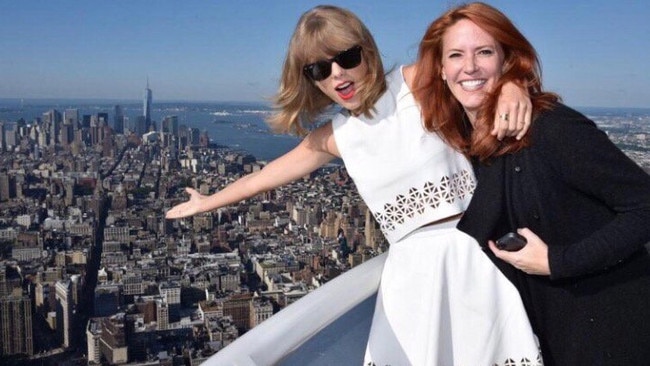
Taylor Swift was celebrating the end of the Australian leg of her Eras Tour in late February when a bit of unpleasantness sailed out from Down Under and landed on the home page of TMZ. The New South Wales Police Force was investigating a 71-year-old man for allegedly assaulting a 51-year-old man at a wharf north of the city, according to their media unit. Per TMZ, the septuagenarian was Scott Swift, Taylor’s father and a key member of her management team, and the younger man was a photographer.
The story had all the makings of a public-relations nightmare: (1) Celebrity family member allegedly behaves badly while (2) disembarking from a luxury yacht, resulting in (3) a police investigation. To make matters more complicated, Taylor was reportedly present for the alleged altercation — hiding under an umbrella, TMZ said. Though the man didn’t require medical treatment, the police said, there was video footage. Would this be the end of the pop star’s marathon run of fawning press?
Not if Tree Paine could help it.
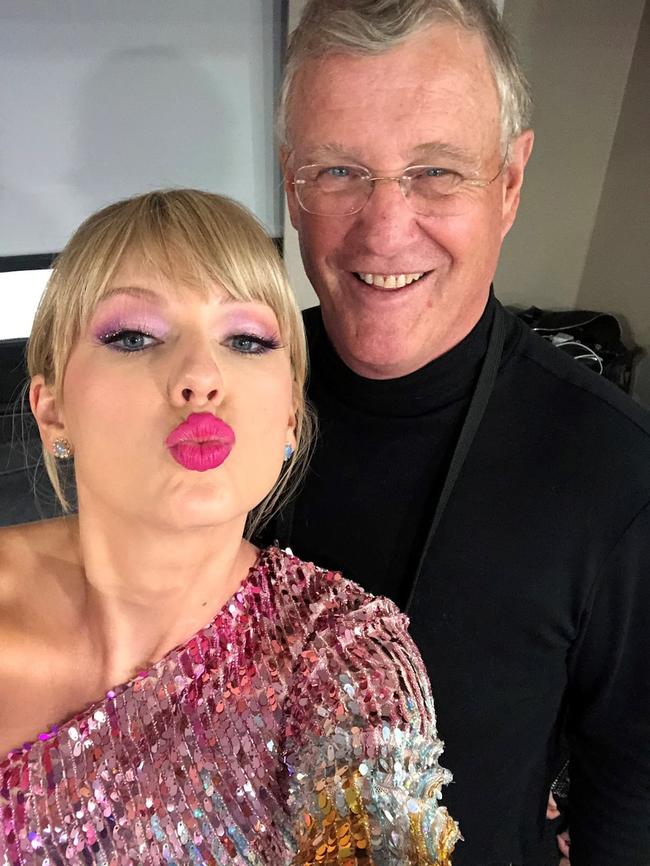
Swift’s longtime publicist first released a statement that did not refute TMZ’s story, exactly, but offered some exculpatory evidence: “Two individuals were aggressively pushing their way towards Taylor, grabbing at her security personnel, and threatening to throw a female staff member into the water.” Subtext: Scott Swift was simply protecting his daughter and another defenceless woman from a couple of rogue aggressors. He was not charged.
Around the same time, as if by magic, People found a video of Scott passing out sandwiches to young female fans at one of the Sydney shows and published it along with fan commentary. “Isn’t he the sweetest and cutest,” one cooed.
Online, Swifties clocked the People story as good old-fashioned damage control. As a chorus of fan posts put it: “The devil works hard, but Tree Paine works harder.” (In late March, the New South Wales Police Force media unit said that the North Shore Police Area Command finished its investigation and that it is taking no further action.) The average celebrity publicist does not have fans. But Paine, the 52-year-old redhead seen trailing Swift at awards shows and rubbing shoulders with Gayle King in the Eras Tour VIP area, has become a Swiftverse cult figure in her own right. Fans post reverently about her PR machinations and share videos of her expertly attending to Swift’s needs: smoothing out Swift’s dress on the red carpet, leading Swift right past a scrum of reporters whose questions have not been approved, subtly offering Swift what appeared to be water at the Video Music Awards — a night when the star was filmed dancing in a manner that suggested inebriation.
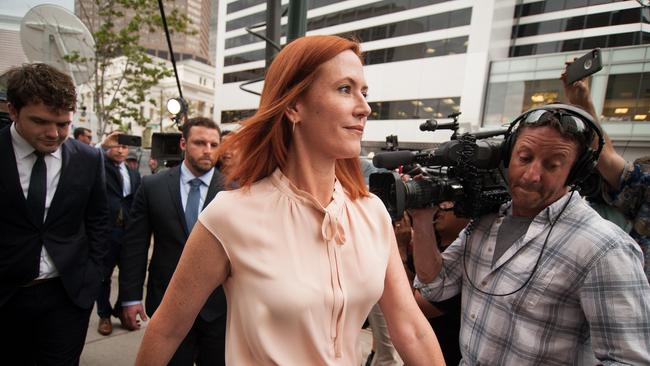
Swift has trained her followers to look for meaning in her every gesture, outfit and Instagram caption. Paine’s own work — the stories she chooses to respond to, the narrative she puts forward in the media — has become part of that lore.
And Swift and Paine are creating a lot of lore lately. Swift spent the fall cheering on her new boyfriend, Kansas City Chiefs tight end Travis Kelce, as he sailed to Super Bowl victory, and dropped by the Grammys to pick up album of the year for Midnights and announce her new album in an acceptance speech for yet another award. The Tortured Poets Department, which fans speculate is at least partly inspired by her break-up with the British actor Joe Alwyn, drops this month, and Swift will promote it while balancing her public relationship, continuing her sold-out international Eras Tour amid growing criticism of her private jet usage and brushing off baseless conspiracy theories that she is secretly working as a Democratic operative to swing the 2024 election for President Joe Biden.
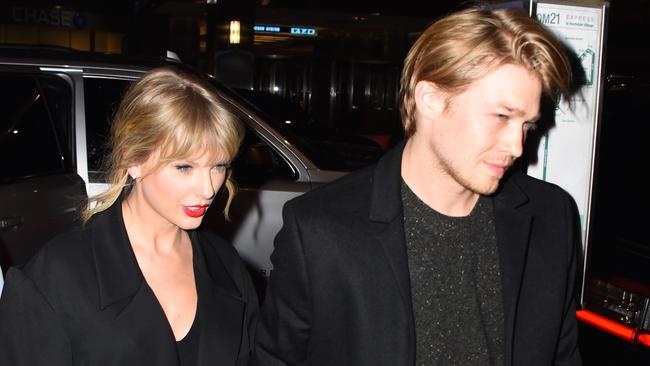
In a long career of riding high, Swift has hit the stratosphere. It’s Paine’s job to keep her there.
Back in 2014, Swift’s world domination was not yet assured. That March, trade publications reported that the pop star’s publicist of seven years, Paula Erickson, had submitted her resignation. Fairly or not, during Erickson’s tenure, Swift developed a reputation for being both boy-crazy and unwilling to joke about it. See: Swift’s string of high-profile relationships with Joe Jonas, Taylor Lautner, Jake Gyllenhaal and Harry Styles; her alleged wedding-crashing with Conor Kennedy; her humourless response to Tina Fey and Amy Poehler’s joke at the 2013 Golden Globes about her dating life. (“There’s a special place in hell for women who don’t help other women,” she told Vanity Fair when asked about the incident.) Erickson declined to comment for this story.
Paine, who had been working as the senior vice president of publicity in the Christian and Country divisions of Warner Music Nashville, came on board and quickly flipped the script. She launched her own firm, Premium PR, and signed Swift as her first and only client. “There isn’t a publicist in NY, LA or Nashville that wouldn’t jump at an opportunity to work with someone as talented as Taylor Swift and her management team,” Paine told Page Six at the time.
That year, Swift moved from Nashville to New York, went full pop with the release of 1989 and began flaunting her friendships with a gaggle of famous women, known colloquially as The Squad. The public started to forget about the time Swift, age 22, allegedly bought a house across the street from the Kennedy compound in Hyannis Port, Massachusetts.

Throughout this transformation, Paine refused to let rumours about her client fester. The very week her hiring was announced, she began issuing public rebuttals to the tabloids. “Never believe the National Enquirer,” she tweeted about an apparently false story that Swift declined to record a duet with Randy Travis. Ten years later, the gossip about Swift has changed, but Paine’s approach has not: She recently called out the anonymous gossip account Deuxmoi for causing “pain and trauma” by posting false rumours about Swift secretly marrying Alwyn before the two broke up.
Paine became even more visible to fans in 2020, when she appeared in Swift’s Netflix documentary Miss Americana. Wearing white shorts and blue nail polish, she clinked white-wine glasses with Swift as the singer-songwriter anxiously prepared to post her first political statement on Instagram. Swifties have since turned Paine into something of a meme: Online, they joke that Swift’s “Out of the Woods” lyric “the monsters turned out to be just trees” is a reference to the publicist and that a red-headed Eras Tour backup dancer is Tree-coded. They have decided that in the inevitable Paine biopic, the publicist will be played by Amy Adams, and that she will win her first Oscar for it.
The fan obsession has been fuelled, in part, by how little Paine has shared publicly about herself. Her Instagram is private. The last time she sat for an interview was 2012, when she was a VP at Warner and appeared in Nashville Lifestyles’ “Most Beautiful People” issue; she posed for a photo in front of a shiplap-covered wall wearing a peasant blouse and made the astonishing revelation that she was “trying to enjoy life.” I cannot report whether that is still true; Paine declined to be interviewed for this story.
Born Trina Snyder, Paine grew up in Costa Mesa, California. She was still going by Trina when she was initiated into Pi Beta Phi at the University of Southern California in 1990, according to the women’s fraternity’s official publication, The Arrow.
Like her client, Paine is a Nashville transplant. In her early career, she worked her way up at a variety of L.A. record labels — World Domination, Maverick and Interscope, whose roster included Snoop Dogg, No Doubt, Nine Inch Nails and Marilyn Manson. She launched her own guerrilla-marketing company, worked for the Academy of Country Music and eventually joined Warner Music in Tennessee.
In 1998, she married Lance Paine, a businessman and one-time president of the Nashville candy brand Goo Goo Cluster, in Las Vegas, according to public records. (Lance also served as president of the company owned by HGTV’s Property Brothers.) The Paines have one teenage daughter, and according to the society pages, they have spent some nights mixing with locals at Nashville charity galas.
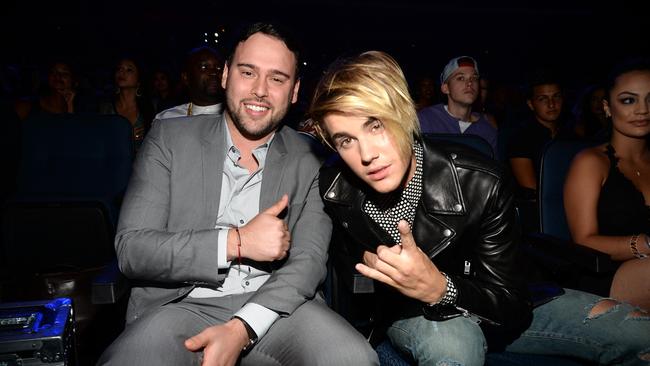
But mostly, Paine works. She has built a fearsome reputation in media circles, closely guarding access to Swift and sending emails to journalists with surprising velocity whenever she disagrees with a story. “Once I started working in media, I would always hear about people getting emails from Tree Paine, or maybe, people being afraid of getting emails from Tree Paine,” says Hunter Harris, a self-described “Painiac” and the writer of the entertainment newsletter Hung Up, which regularly chronicles Paine’s engagement with the press. (Harris has also contributed to WSJ. Magazine.) In the past 10 years, Paine has guided Swift through some of the more tumultuous moments of her career: her feud with Kim Kardashian and Kanye West; her trial accusing a former DJ of sexual assault; her battle against her former label, Scooter Braun and private-equity giants for the control of her master recordings. At almost every turn, Paine presents Swift — arguably the most famous woman on the planet, a billionaire with a private jet — as a relatable underdog fighting for her voice to be heard.
It has, for the most part, worked. In the process, Paine has become one of the most powerful people in the entertainment industry.
The Wall Street Journal



